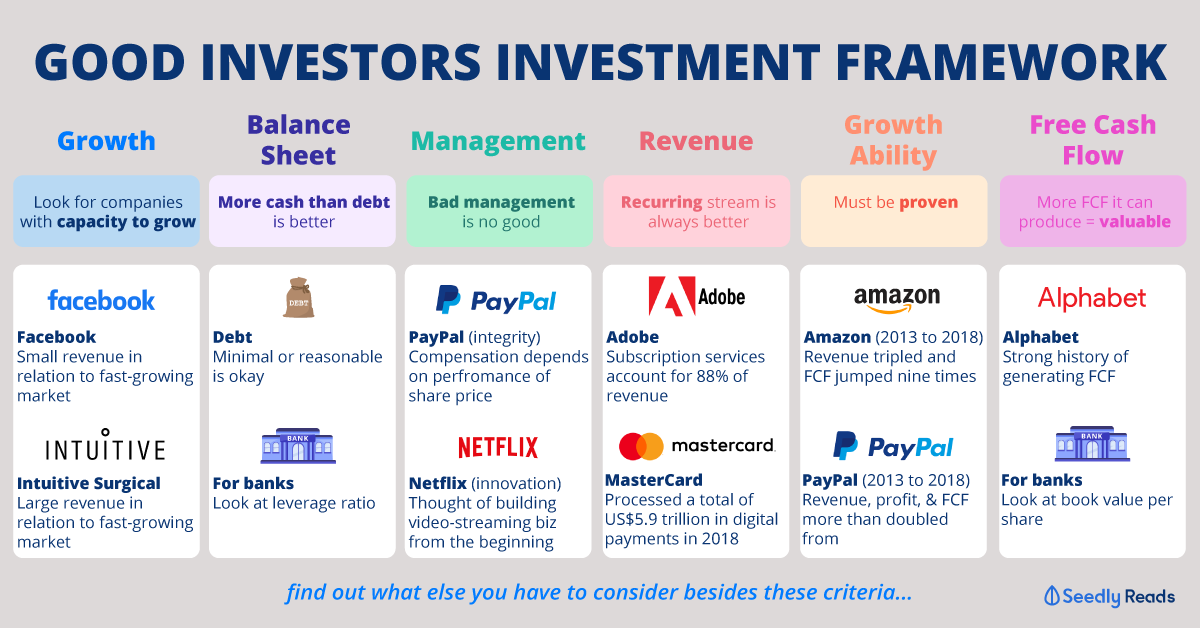Advertisement
Anonymous
Why are ETFs such a good form of investment?
I keep hearing people talk about it but I can't figure out why
8
Discussion (8)
Learn how to style your text
Sin Ting So
19 Oct 2019
Head Of Client Experience at Endowus
Reply
Save
Arpita Mukherjee
17 Oct 2019
Community Evangelist at Kristal.AI
There are so many benefits an investor can find by investing in ETFs - lower transaction costs, flexibility in trading, transparency, tax efficiency et al.
Below are some that you will find most commonly:
- Lower Costs - Typically, operating expenses that are incurred by all managed funds include, but are not limited to, portfolio management fees, custody costs, administrative expenses, marketing expenses, and distribution. In the case of ETFs however, Since there is only one transaction per trade, commissions are usually lower as compared to that of an index, which requires a basket of stocks and multiple trades. ETFs also have lower expenses in the area of monthly statements, notifications, and transfers.
- Flexibility in Trading - ETFs trade just like equities on the stock market. They are bought and sold during the day when the markets are open. ETF share prices are continuous during normal exchange hours and only vary throughout the intraday value of the underlying assets in the fund change, investors are always aware of how much they spent on the purchase or gained from selling.
- Tax Advantage - ETFs are tax-friendly investments as capital gains taxes are much lower for them. In the case of mutual funds or index trade, capital gain taxes are incurred as soon as the gain is realized. On the contrary with ETFs, individual capital gains are not realized until the assets are sold with the entire fund.
- Portfolio diversification and risk management - ETFs provide investors with easy exposure to a specific desired market segment, thanks to the myriad of sectors and industries available to it. An investor can now trade on virtually every major asset class, commodity, and currency in the world. Not only that, but on the fixed-income side of an investor’s portfolio, they will have a mix of short-term and long-term bonds, government and corporate issues, and perhaps some federal-tax-free municipal bonds.
I hope this answers your query!
I work at Kristal.AI, and my mojo is to help people make the right financial decisions.
If you think I helped you, do give me "Thumbs up". If you think my response was biased let me know, I will work on it.
Reply
Save
Cedric Jamie Soh
17 Oct 2019
Director at Seniorcare.com.sg
Emphasising on the one biggest advantage ETF has.
LOWEST costs in the long term.
ETF does not actively manage the funds, so there is no need to pay big % to actively managed funds like hedge funds, unit trusts etc.
The savings may be only 1% per year, but if you understand the power of compounding, the difference of 1% per year would lead to difference of huge tens or hundreds of thousands by the time you cash out.
Reply
Save
Victor Chng
20 Feb 2019
Co-Founder at Fifth Person Pte Ltd
Hi,
Firstly, if you look at the history of stock market index, in a long run it is on an uptrend except Japan market. Hence, the index ETF track the stock index of the particular country.
Secondly, When you invest in index ETF, you don;t invest in one company but a basket of companies which help you to diversify your risk.
Lastly, unlike stock investment which require a certain amount of time to research the company. Index ETF is a basket of companies which require minimum analysis as it contain the country largest stocks in it. Hence, if time for research is an issue then investing in ETF will be a better choice.
Reply
Save
I think there are many other posts that have explained and described this idea, so I will give a mor...
Read 3 other comments with a Seedly account
You will also enjoy exclusive benefits and get access to members only features.
Sign up or login with an email here
Write your thoughts
Related Articles
Related Posts
Related Posts
Advertisement










Dear Anonymous,
Although ETFs aren’t exactly new to the market, growth in the industry has been astronomical over the last few years. This has been on the whole a boon for investors, who have benefitted from the lower cost of ETFs. We love low cost investing, but there are some things to look out for when making decisions around ETFs.
1) Tracking error. ETFs, for the most part, are passive instruments that track the returns of a benchmark index rather than trying to beat the market. Many investors are surprised to learn that some ETFs do not exactly track the indices they were created to mimic. The higher the tracking error from its benchmark, the less the ETF can be used to represent it. The ETF issuer can try to reduce tracking error, but this can potentially add expenses, which are typically passed on as a higher management fee to investors. You can’t assume that two ETFs that track the same benchmark will perform identically or cost the same amount.
2) Synthetics. Sometimes, an ETF is just a wrapper. You need to dig deeper to see what the ETF is actually invested in. For example, United States Oil Fund (USO) is one of the more popular commodity ETFs. What investors don’t realize is that the ETF invests only in oil futures, and doesn’t directly track the performance of oil’s spot price. Always understand the underlying products you are holding through an ETF.
3) Cost. Similar ETFs from different providers, or even the same provider, have highly variable expense ratios (the cost of the ETF, which is taken out of the ETF price every day). Take for example Blackrock’s emerging market ETFs IEMG (iShares Core MSCI EM ETF) and EEM (iShares MSCI EM ETF): their expense ratios are 0.14% and 0.72% respectively. That is a huge spread for very similar exposure. There are also other costs involved in executing an ETF portfolio strategy such as brokerage fees and bid-ask spreads when trading. Another lesser-known fact: Sometimes ETF issuers generate income by lending out their underlying securities to hedge funds to enable short sales. This does result in lower management fees, but also increases the risk to you.
4) Mythbusting: ETFs are always cheaper than mutual funds (unit trusts) is false. There are mutual fund providers such as Vanguard and Dimensional Fund Advisors that have management fees in-line with or below ETFs for similar and even better implemented exposure.
Hope this helps!